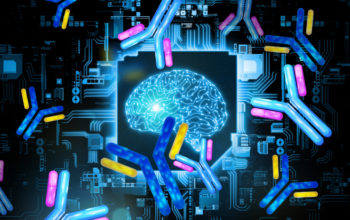
Date: 7th January 2022
Protein-based therapeutics are highly successful in the clinic, due to their fast-action and potency, and are successfully being used to treat a wide range of conditions. However, protein instability and immunogenicity are among the key challenges affecting the success of protein therapeutics which is in part being addressed by protein engineering and design strategies. These are slow and time consuming processes which leads to long generation times of these products becoming accessible for use in the clinic.
Now, Amgen and Generate Biomedicines have announced a research collaboration agreement to discover and create protein therapeutics for five clinical targets across several therapeutic areas and multiple modalities using artificial intelligence (AI).
Generate Biomedicines based in Cambridge, US, is a pioneering company that exists at the intersection of machine learning, biological engineering, and medicine. They use a revolutionary approach to drug discovery and development that leverages machine learning (ML) and AI to program novel protein therapeutics, in a term coined ‘generative biology’. Here, ML algorithms have analysed hundreds of millions of known proteins in order to learn general statistical patterns linking amino acid sequence, structure and function. Their technology platform has been further enhanced by closed-loop learning on thousands of computationally generated and broadly experimental characterised novel proteins over the past three years. These learned rules are then used to generate novel medicines with specific therapeutic functions.
The platform can drastically improve the speed at which targets and therapeutics are identified and validated, the specificity of target engagement by generated proteins, and the cost of identifying and developing clinical candidates.
Amgen, based in California, US, is one of the world’s leading biotechnology companies and is committed to unlocking the potential of biology for patients suffering from serious illnesses by discovering, developing, manufacturing and delivering innovative human therapeutics. They have married wet lab high throughput automation and dry lab computational biology in which this generative biology strategy has led to the generation of a Digital Biologics Discovery group. Here, their expertise in biologics is combined with emerging sequence-based drug design technologies to deliver complex multispecific medicines against a variety of difficult-to-treat diseases.
The partnership between Amgen and Generate will leverage Generate’s ML-enabled technology platform with Amgen’s strength in protein engineering to accelerate the drug discovery efforts and generation of novel protein therapeutics with optimal properties for patients. They envisage this will expand beyond just proteins that are found in nature, allowing the creation of de novo, purpose-built proteins capable of performing any desired function under timelines that have not been possible through other approaches.
As part of the research collaboration, Amgen will pay $50 million in upfront funding for the initial five programs with a potential transaction value of $1.9 billion plus future royalties, and will have the option to nominate up to five additional programs, at additional cost. For each program, Amgen will pay up to $370 million in future milestones and royalties up to low double digits. Amgen will also participate in a future financing round for Generate.
It is an exciting time for the pharmaceutical industry and there is currently a strong movement of collaborations between the drug industry and multinational technology companies with the aim of re-imagining medicine with AI. Twist Bioscience announced recently a collaboration with deep learning experts, deepCDR, which will advance antibody discovery and optimisation capabilities. Valence Discovery and Repare Therapeutics announced last year they have entered into a drug discovery agreement – leveraging Valence’s unique expertise in machine learning drug design with Repare’s propriety drug discovery using a synthetic lethality approach to accelerate precision oncology. Boehringer & Google Quantum AI are using quantum computing to also accelerate drug design.
Together these digital technologies are transforming our healthcare and pharmaceutical industries. With artificial intelligence, machine and deep learning, giving us a greater depth of understanding of diseases and accelerating a new generation of drugs and therapies, and driving the development of innovative technologies for treatments of disease and diagnosis.
For more information please see the press release at Business Wire


